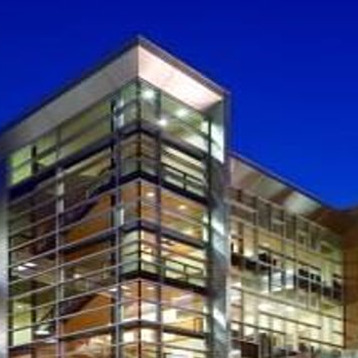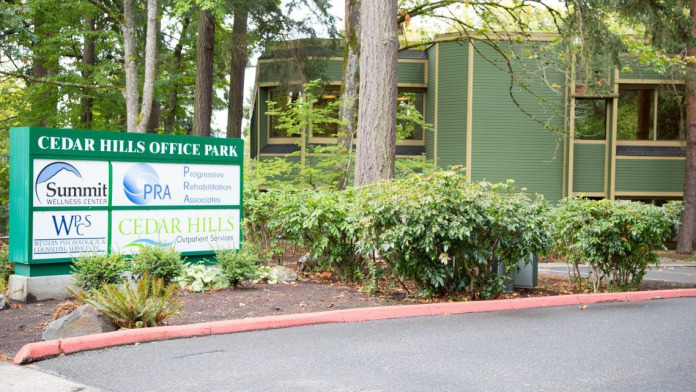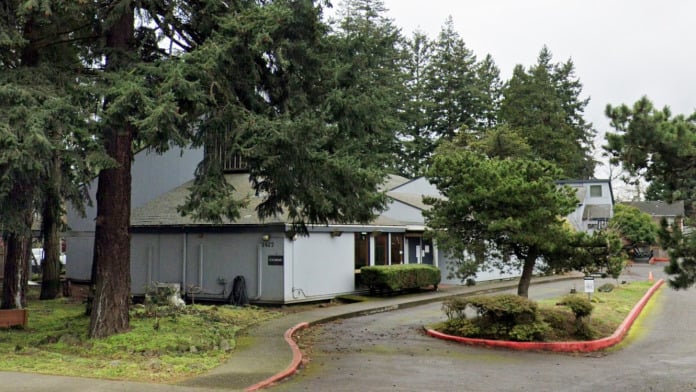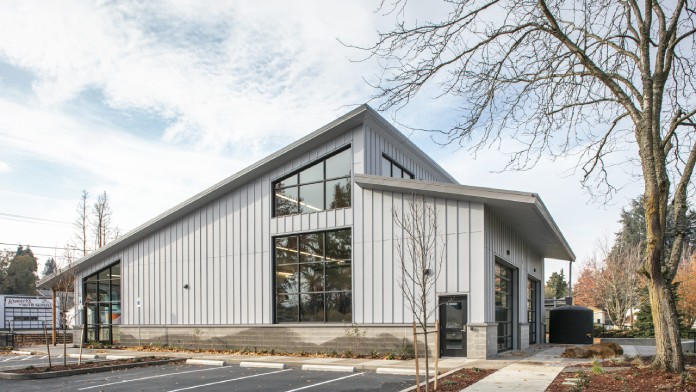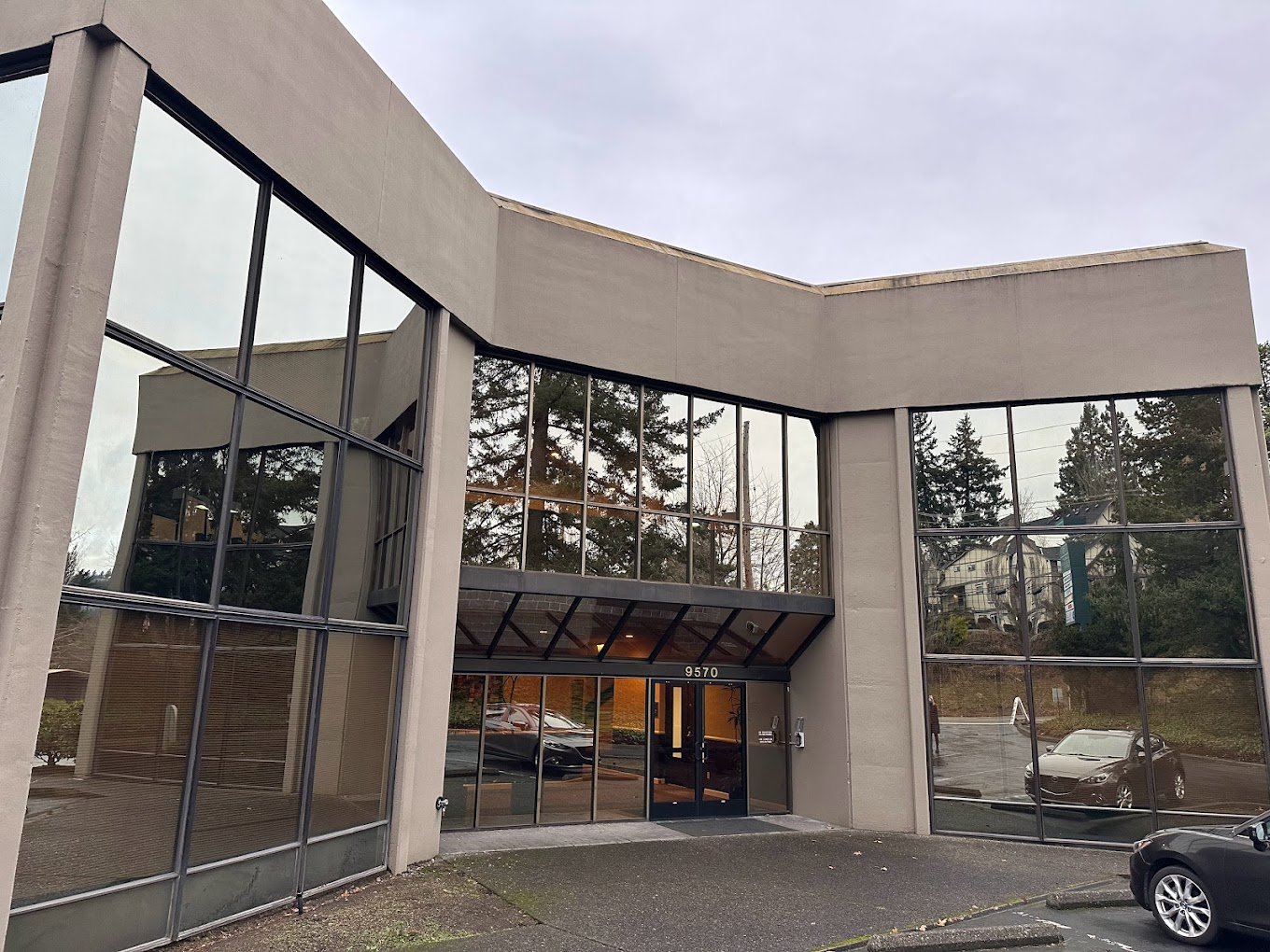About Monte Nido Portland Day Treatment
Monte Nido Portland Day Treatment in Portland, Oregon’s John’s Landing neighborhood provides specialized eating disorders treatment for adults and adolescents. While clients here have to have a primary diagnosis of an eating disorder, treatment also addresses co-occurring mental health conditions including substance use disorders. With views of the Willamette River and a strong recovery community, many clients find it a supportive place to heal.
A Treatment Program Designed for You
Neither eating disorders nor SUDS look the same for everyone, and treatment shouldn’t either. Monte Nido Portland Day Treatment offers a structured yet flexible program designed to support adults and adolescents of all genders through personalized care.
With a team that includes therapists, dietitians, and medical providers, treatment here is built around your specific needs. They provide age appropriate support, so individuals ages 12 to 17 are placed in the adolescent treatment program. The adult program is for individuals 18 and older.
Treating Eating Disorders and SUDs Together
You might wonder why a treatment center that specializes in eating disorders would also help people who are experiencing SUDs. It’s incredibly common for people with eating disorders to also struggle with other mental health conditions, including substance use disorders.
If that’s part of your experience, you’re not alone. According to the Substance Abuse and Mental Health Service Administration, nearly everyone with a lifetime diagnosis of an eating disorder has at least one co-occurring mental health condition, most often a mood disorder, anxiety disorder, or substance use disorder. Treating everything together gives you the best chance at lasting recovery.
A Multimodal Approach to Recovery
Everyone gets a personalized treatment plan, and it seems like there’s a good balance between structure and independence. Depending on your care level, you’ll participate in treatment five to seven days a week.
There’s a mix of individual therapy, group sessions, and skills-based learning. Sober living aftercare options, including 12-step meetings, are there to help keep you on track after finishing your program. Many clients have shared how much the support and structure helped them avoid falling back into old behaviors.
Monte Nido Portland Day Treatment provides compassionate and supportive care that meets you where you are, plus they make paying for treatment easy. They work with many major insurance providers, and even offer financial assistance.
Latest Reviews
Rehab Score
Gallery
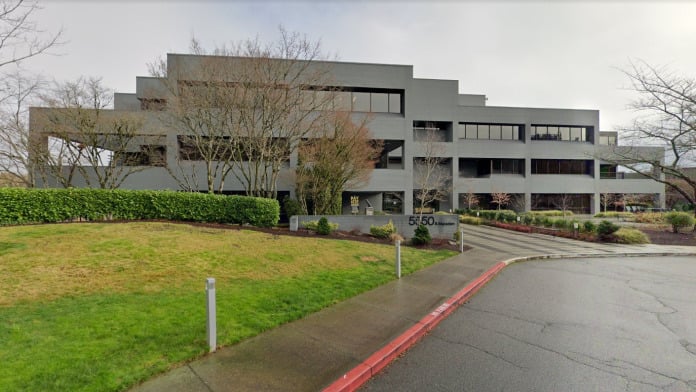
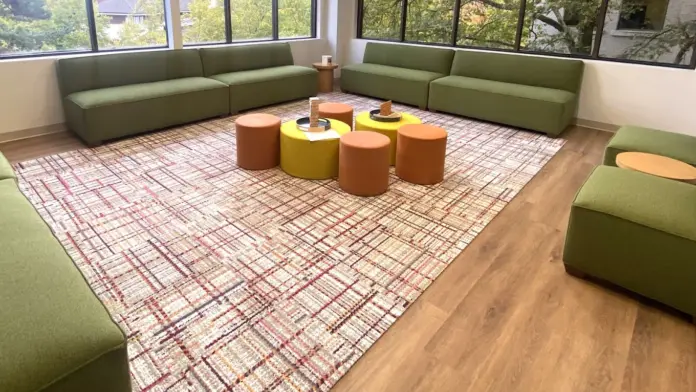
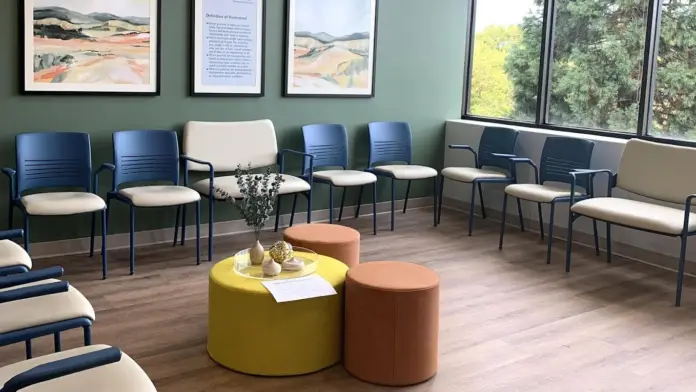
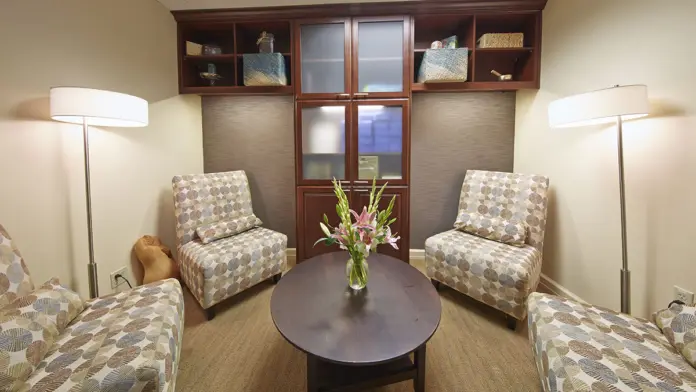
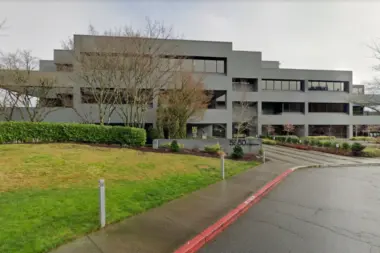
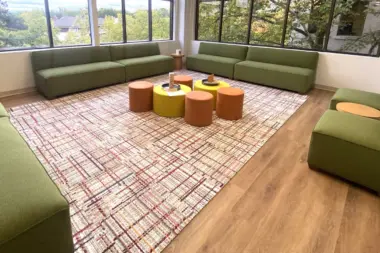
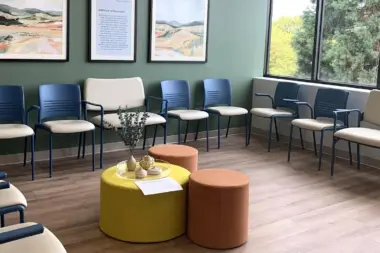

Accepted Insurance


Other Forms of Payment
Private insurance refers to any kind of healthcare coverage that isn't from the state or federal government. This includes individual and family plans offered by an employer or purchased from the Insurance Marketplace. Every plan will have different requirements and out of pocket costs so be sure to get the full details before you start treatment.
Self-pay involves paying for treatment out of your own pocket. You can use savings or credit, get a personal loan, or receive help from family and friends to fund your treatment. If you don't have insurance or your insurance plan doesn't cover a specific program, self-pay can help ensure you still get the care you need.
Financial aid can take many forms. Centers may have grants or scholarships available to clients who meet eligibility requirements. Programs that receive SAMHSA grants may have financial aid available for those who need treatment as well. Grants and scholarships can help you pai for treatment without having to repay.
Addiction Treatments
Levels of Care
Outpatient Programs (OP) are for those seeking mental rehab or drug rehab, but who also stay at home every night. The main difference between outpatient treatment (OP) and intensive outpatient treatment (IOP) lies in the amount of hours the patient spends at the facility. Most of the time an outpatient program is designed for someone who has completed an inpatient stay and is looking to continue their growth in recovery. Outpatient is not meant to be the starting point, it is commonly referred to as aftercare.
Residential treatment programs are those that offer housing and meals in addition to substance abuse treatment. Rehab facilities that offer residential treatment allow patients to focus solely on recovery, in an environment totally separate from their lives. Some rehab centers specialize in short-term residential treatment (a few days to a week or two), while others solely provide treatment on a long-term basis (several weeks to months). Some offer both, and tailor treatment to the patient's individual requirements.
Intensive Outpatient Programs (IOP) are for those who want or need a very structured treatment program but who also wish to live at home and continue with certain responsibilities (such as work or school). IOP substance abuse treatment programs vary in duration and intensity, and certain outpatient rehab centers will offer individualized treatment programs.
Rehab aftercare programs are generally predicated on the understanding that addiction disease is chronic and relapsing and the recovery is a life-long process requiring ongoing care. Clients in drug rehab aftercare have typically completed inpatient detox and/or rehab but may still be receiving outpatient treatment. Their unique care plan is usually developed in collaboration with their care team and case manager and may include peer coaching, career counseling, 12 step program facilitation, and related services.
When participating in 12 step programs, clients receive intensive and ongoing peer support as they work through the recovery journey. They're expected to regularly attend 12 step meetings and to select a peer sponsor for one-on-one mentoring. Meetings are free, anonymous, and accessible multiple times a day, 365 days per year, in most communities. Religious affiliation is not required, though these programs are rooted in the belief in a higher power as a foundation of personal growth and long-term sobriety.
A partial hospitalization program (PHP) is a more intensive form of outpatient and can be a step-down service in substance use disorder treatment. During PHP treatment, which lasts 4-8 hours per day and up to 5 days a week, you'll participate in daily therapeutic services (relapse prevention, medication management, and behavioral therapy) for an average of 90 days. The cost of PHP treatment varies, but it is typically covered by insurance providers.
24-hour clinical care in Oregon offers a safe place for those experiencing withdrawal to recover in a medical detox program. Around-the-clock care lessens the risk of serious withdrawal symptoms and provides a more comfortable detox process. With medical staff on-site, more serious symptoms are less likely to develop and pose health threats. Medications and nutritional treatment can be provided, as well as mental health treatment to address any co-occurring disorders.
Treatments
Co-occurring presentations such as substance abuse and trauma reactions like PTSD, share common causal and maintaining factors with eating disorders that influence treatment and recovery. At Monte Nido, they believe thoroughly assessing and treating co-occurring issues will substantially improve the chances of becoming fully and sustainably recovered. This programming focuses on stabilizing eating disorder, substance use and PTSD symptomatology; reducing urges, enhancing motivation, developing alternative coping capacities and changing the way clients think about themselves and their world. The treatment includes CBT, DBT, CPT (Cognitive Processing Therapy) and more.
Mental health rehabs focus on helping individuals recover from mental illnesses like bipolar disorder, clinical depression, anxiety disorders, schizophrenia, and more. Mental health professionals at these facilities are trained to understand and treat mental health issues, both in individual and group settings.
Programs
Adult rehab programs include therapies tailored to each client's specific needs, goals, and recovery progress. They are tailored to the specific challenges adult clients may face, including family and work pressures and commitments. From inpatient and residential treatment to various levels of outpatient services, there are many options available. Some facilities also help adults work through co-occurring conditions, like anxiety, that can accompany addiction.
Young adulthood can be an exciting, yet difficult, time of transition. Individuals in their late teens to mid-20s face unique stressors related to school, jobs, families, and social circles, which can lead to a rise in substance use. Rehab centers with dedicated young adult programs will include activities and amenities that cater to this age group, with an emphasis on specialized counseling, peer socialization, and ongoing aftercare.
Clinical Services
Cognitive Behavioral Therapy (CBT) is a therapy modality that focuses on the relationship between one's thoughts, feelings, and behaviors. It is used to establish and allow for healthy responses to thoughts and feelings (instead of unhealthy responses, like using drugs or alcohol). CBT has been proven effective for recovering addicts of all kinds, and is used to strengthen a patient's own self-awareness and ability to self-regulate. CBT allows individuals to monitor their own emotional state, become more adept at communicating with others, and manage stress without needing to engage in substance abuse.
Dialectical Behavior Therapy (DBT) is a modified form of Cognitive Behavioral Therapy (CBT), a treatment designed to help people understand and ultimately affect the relationship between their thoughts, feelings, and behaviors. DBT is often used for individuals who struggle with self-harm behaviors, such as self-mutilation (cutting) and suicidal thoughts, urges, or attempts. It has been proven clinically effective for those who struggle with out-of-control emotions and mental health illnesses like Borderline Personality Disorder.
Group therapy is any therapeutic work that happens in a group (not one-on-one). There are a number of different group therapy modalities, including support groups, experiential therapy, psycho-education, and more. Group therapy involves treatment as well as processing interaction between group members.
In individual therapy, a patient meets one-on-one with a trained psychologist or counselor. Therapy is a pivotal part of effective substance abuse treatment, as it often covers root causes of addiction, including challenges faced by the patient in their social, family, and work/school life.
Trauma therapy addresses traumatic incidents from a client's past that are likely affecting their present-day experience. Trauma is often one of the primary triggers and potential causes of addiction, and can stem from child sexual abuse, domestic violence, having a parent with a mental illness, losing one or both parents at a young age, teenage or adult sexual assault, or any number of other factors. The purpose of trauma therapy is to allow a patient to process trauma and move through and past it, with the help of trained and compassionate mental health professionals.
Research clearly demonstrates that recovery is far more successful and sustainable when loved ones like family members participate in rehab and substance abuse treatment. Genetic factors may be at play when it comes to drug and alcohol addiction, as well as mental health issues. Family dynamics often play a critical role in addiction triggers, and if properly educated, family members can be a strong source of support when it comes to rehabilitation.
Life skills training is customized to fit your circumstances and needs. It allows you to rebuild the skills you've lost to addiction and regain control of daily life. It provides the necessary social, psychological, and physical skills you need for recovery.
When you've been using substances long term, this depletes your body of valuable nutrients. During nutrition therapy, you'll take steps to restore your health and learn how to maintain better nutrition. This is an important component of many drug rehab programs in Oregon.
It can be difficult to interpret or articulate how you're feeling during recovery. Through creative arts therapy, you can explore those emotions and share what you're feeling in ways beyond words. Methods include dance, drama, music, drawing, and writing.
During experiential therapy in Oregon, the therapist focuses on your perceptions of what you're experiencing while engaging in activities such as art, music, wilderness adventures, or animal care. The therapist will help you explore your emotions and their meaning to help you work through past experiences and cope with trauma, hurt, and anger.
The FDA has approved two quit smoking medications. Varenicline works by reducing the "buzz" you get from nicotine, so smoking is less enjoyable. Bupropion decreases nicotine withdrawal and cravings. Over the counter nicotine replacement therapy options in Oregon include nicotine patches, lozenges, and gum.
Amenities
-
Yoga Studio
-
Residential Setting
-
Walking Trails
Staff & Accreditations
Staff

Cassie McLean, MPA
CEO
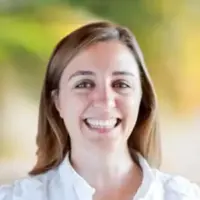
Giulia Peterlongo, MBA
COO
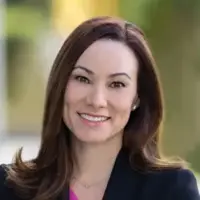
Molly Perlman, MD, MPH, CEDS-C
CMO
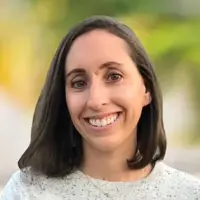
Giulia Suro, Ph.D., CEDS
Director of Research and Clinical Outcomes
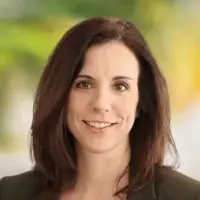
Brandie Kalinowski, MBA
Chief People Officer
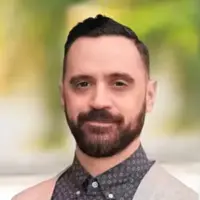
Anthony Modano
CMO

Britni Swayzee, RN, RWR
Director of Nursing

Angela Walden, BA
Regional Director of Clinical Services Californa
Accreditations

The Joint Commission, formerly known as JCAHO, is a nonprofit organization that accredits rehab organizations and programs. Founded in 1951, the Joint Commision's mission is to improve the quality of patient care and demonstrating the quality of patient care.
Joint Commission Accreditation: Yes
Contact Information
5100 SW Macadam Ave.
Suite 360
Portland, OR 97239



